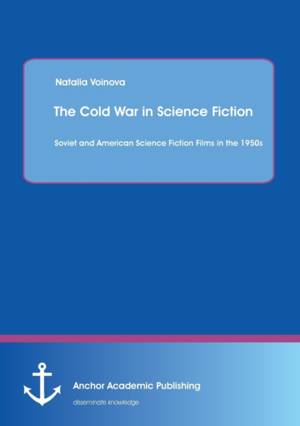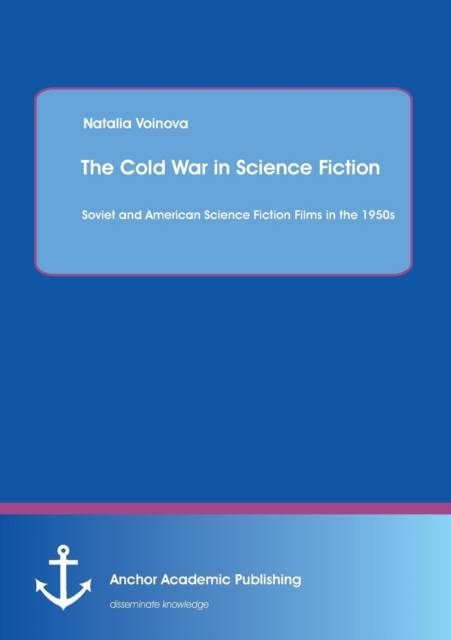
Je cadeautjes zeker op tijd in huis hebben voor de feestdagen? Kom langs in onze winkels en vind het perfecte geschenk!
- Afhalen na 1 uur in een winkel met voorraad
- Gratis thuislevering in België vanaf € 30
- Ruim aanbod met 7 miljoen producten
Je cadeautjes zeker op tijd in huis hebben voor de feestdagen? Kom langs in onze winkels en vind het perfecte geschenk!
- Afhalen na 1 uur in een winkel met voorraad
- Gratis thuislevering in België vanaf € 30
- Ruim aanbod met 7 miljoen producten
Zoeken
The Cold War in Science Fiction
Soviet and American Science Fiction Films in the 1950s
Natalia Voinova
€ 34,45
+ 68 punten
Omschrijving
This study will compare the USSR and the United States according to their cinematic use of science fiction in the late 1950s and 1960s in order to coincide with the period of de-Stalinisation and thaw in the USSR, and late McCarthyism in the United States. The genre provides an opportunity to express the two powers' scientific stand-off through fiction, and serves as a vehicle for the dissemination of ideas and propaganda. Post-1956 marks the time when the period of de-Stalinisation officially began and science fiction saw a carefully crafted rebirth for it served as a tool that could reflect the socialist ideal and quasi-religious faith in science that was promoted by the party. Science fiction uniquely demands for an imaginative view of the future, and therefore, corresponds with the Marxist- Leninist future-oriented ideology. For this period, the themes for American science fiction are hyperbolised monsters and invasion, and reflect the fear of the otherness of the Soviet Union, and its threat on domestic ideals. These themes are reflected in movies as 'Angry Red Planet', and 'Them!'. On the other hand, Soviet science fiction movies focus on the heroic Soviet man who frequently receives calls for help from outer space, and overcomes great trials to save those not living in utopia. This storyline is represented in 'Towards a Dream', and 'The Sky is calling'. The author gives special attention to the Soviet movie 'The Sky is calling' and the subsequent redubbed American version 'Battle beyond the Sun'. Further, she addresses alterations or plot, and subtle propaganda messages in the Soviet movies 'Planet of Storms', and the Hollywood remake 'Journey to the Prehistoric Planet'.
Specificaties
Betrokkenen
- Auteur(s):
- Uitgeverij:
Inhoud
- Aantal bladzijden:
- 46
- Taal:
- Engels
- Reeks:
Eigenschappen
- Productcode (EAN):
- 9783954890583
- Verschijningsdatum:
- 23/05/2013
- Uitvoering:
- Paperback
- Formaat:
- Trade paperback (VS)
- Afmetingen:
- 148 mm x 210 mm
- Gewicht:
- 72 g

Alleen bij Standaard Boekhandel
+ 68 punten op je klantenkaart van Standaard Boekhandel
Beoordelingen
We publiceren alleen reviews die voldoen aan de voorwaarden voor reviews. Bekijk onze voorwaarden voor reviews.









